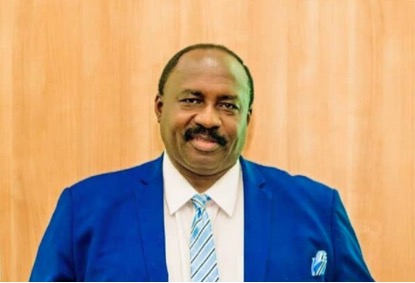Flight disruptions and urgency for modernisation
No country is completely immune from flight disruptions and cancellations, which are dependent on several factors such as weather conditions, air traffic and mechanical issues. But the situation in Nigeria has gotten out of hand, with some airlines cancelling or delaying flights almost on a daily basis, and in most cases without apology or compensation […]

Captain Chris Najomo
No country is completely immune from flight disruptions and cancellations, which are dependent on several factors such as weather conditions, air traffic and mechanical issues.
But the situation in Nigeria has gotten out of hand, with some airlines cancelling or delaying flights almost on a daily basis, and in most cases without apology or compensation for passengers.
A robust aviation sector is key to economic diversification and one of the major incentives for foreign direct investment. Any country that fails to get this right will certainly continue to be left behind.
In Nigeria, flight disruptions and cancellations are an all-year-round phenomenon, and when it is harmattan season, the whole scenario turns to something else.
- Allegations against Nigeria: More knocks for Niger military ruler
- How tears of Abuja demolitions ‘blurred’ Wike’s efforts in 2024
The Acting Director General of the Nigerian Civil Aviation Authority, Captain Chris Najomo, while delivering his speech at the Airlines-NCAA engagement event in Lagos State on Friday last week, lamented how flight delays and cancellations have imposed huge discomfort on passengers, businesses the credibility of the aviation industry and national development as a whole. He said 190 flights were cancelled within two months.
Najomo disclosed that out of 5,291 flights operated in September 2024, no fewer than 2,434 were delayed while 79 were cancelled. He also said out of 5,513 flights operated in October 2024, no fewer than 2,791 were delayed while 111 were cancelled.
According to him, “Delays and cancellations are sometimes inevitable, but poor management of these disruptions is not. It is the responsibility of airlines to ensure that every disruption, due to operational, technical or weather-related challenges, is handled with the utmost professionalism and regard for passengers’ rights, particularly as we are in the harmattan season with poor weather conditions that will affect flight operations.
“I must remind all operators of the NCAA Regulations on Passenger Rights during disruptions, as outlined in the Nigeria Civil Aviation (Consumer Protection) Regulations, 2023 (that) these regulations are not optional; they are mandatory obligations,” he said.
What is being witnessed in Nigeria presently is the thick haze characteristic of the harmattan, which reduces visibility to dangerous levels and therefore grounds flights, causes delays and disrupts social engagements and personal plans.
Despite the availability of technology to predict weather, Nigeria’s aviation industry appears unprepared year after year, leaving passengers stranded and frustrated.
This systemic dysfunction raises the question: why has the government not embraced modern technology to mitigate these annual disruptions? The absence of proactive measures becomes particularly glaring when juxtaposed with the promises made by the Minister of Aviation, Festus Keyamo, in December 2023.
Speaking before the Joint National Assembly Committee on Aviation, Keyamo announced measures to address flight delays and cancellations, including compelling airlines to compensate passengers, publishing weekly accountability reports, and introducing rebates for affected travellers.
While these assurances were well received at the time, they remain largely unfulfilled to date.
Harmattan-induced flight disruptions extend far beyond the inconveniences faced by stranded passengers. Businesses dependent on timely deliveries and face-to-face engagements suffer significant financial losses. Entrepreneurs miss crucial meetings, goods are delayed, and perishable items are often destroyed due to prolonged transportation times. For individuals, weddings, funerals, and other social events are disrupted, leading to emotional and logistical turmoil.
In spite of these cascading effects, local airlines continue to operate with an air of impunity. Agreed, the operating environment is very difficult for the airlines, considering that most of their services rely on foreign currency; but yet, Nigerians deserve better services from them.
The unpredictability of flight operations during the harmattan and beyond means that Nigerians cannot confidently plan their travel, further eroding trust in the aviation industry.
Airlines must be held to higher standards, with penalties for non-compliance and incentives to improve service delivery.
Globally, advanced aviation technology has made it possible to operate flights safely even in adverse weather conditions.
Precision Instrument Landing Systems (ILS), Enhanced Radar and Satellite-Based Navigation (ERSBN), Enhanced Ground Proximity Warning Systems (EGPWS) and Automatic Dependent Surveillance-Broadcast (ADS-B) are just a few examples of modern equipment that can significantly improve flight operations during the harmattan.
Countries with less challenging weather conditions than Nigeria have invested heavily in these technologies, recognising their importance for economic growth and national reputation.
Nigeria cannot afford to remain stagnant. If we are serious about becoming a regional aviation hub, we must invest in modern navigational aids and airport infrastructure. This requires not just funding but a strategic vision for the future of aviation in Nigeria.
The federal government has a critical role to play in addressing harmattan disruptions. Beyond rhetoric, tangible actions are needed. The government must prioritise upgrading airport facilities and installing modern navigational aids.
The NCAA must also be empowered to enforce regulations effectively; ensuring airlines comply with compensation policies and operational standards.
As Keyamo himself suggested, private partnerships can be a game-changer for Nigeria’s aviation sector.
However, these partnerships must be with credible, high-tier investors capable of delivering world-class infrastructure.
The minister must also address the systemic issues within his ministry and regulatory agencies. This includes holding officials accountable for lapses and ensuring that policies are implemented effectively.
With the right investments in technology and leadership, Nigeria can transform its aviation sector into a symbol of efficiency and reliability. But time is of the essence. The world is watching, and the onus is on the government, the NCAA, and the airlines to rise to the occasion.
